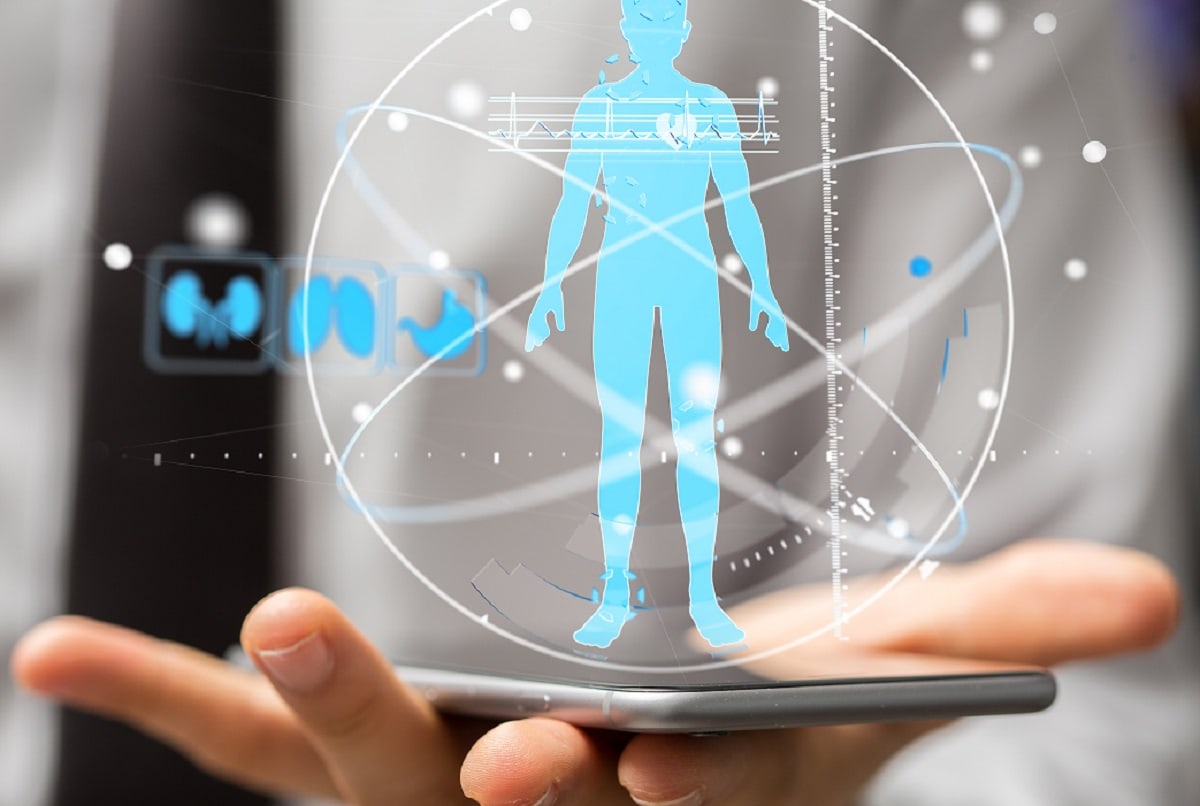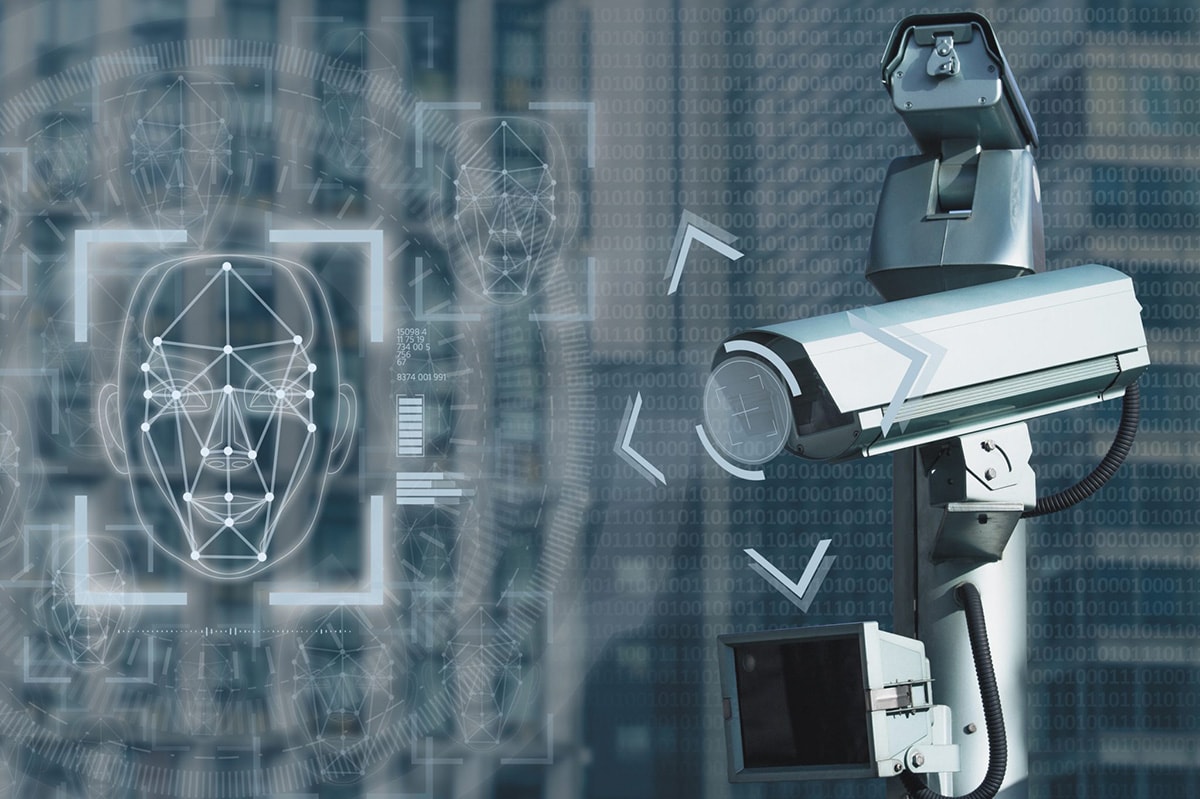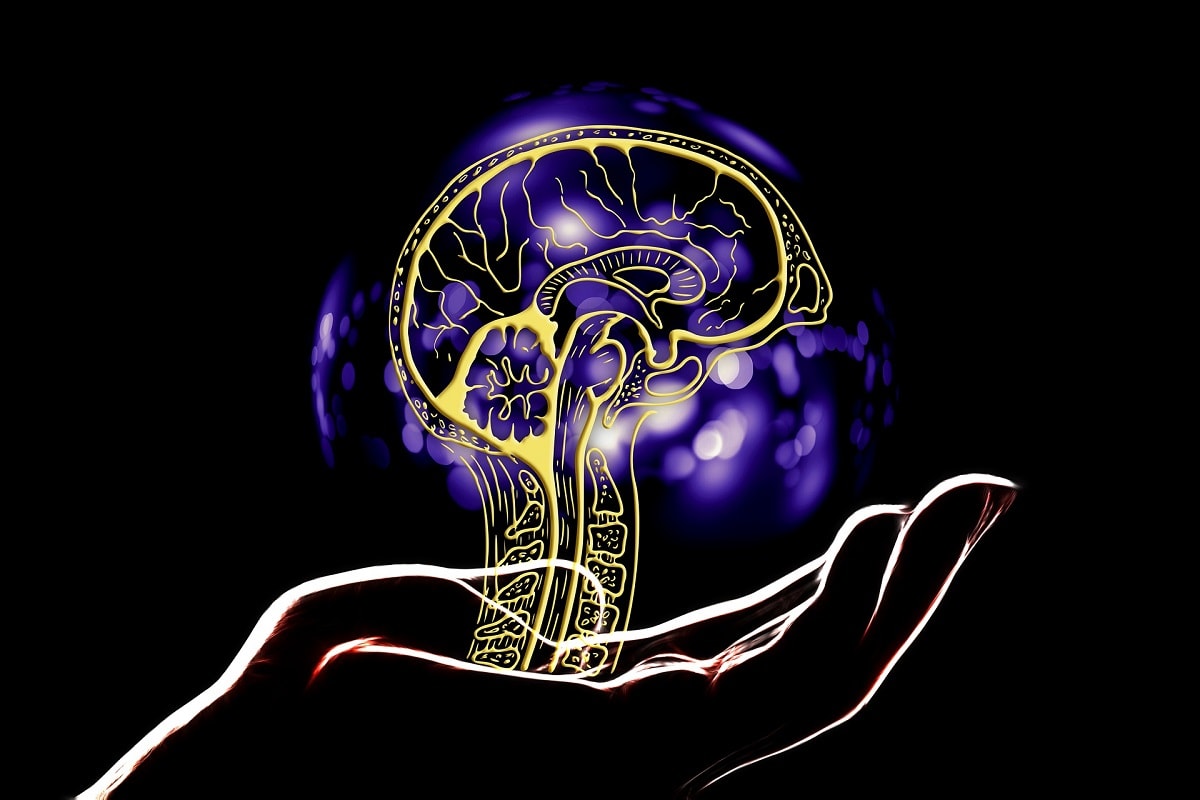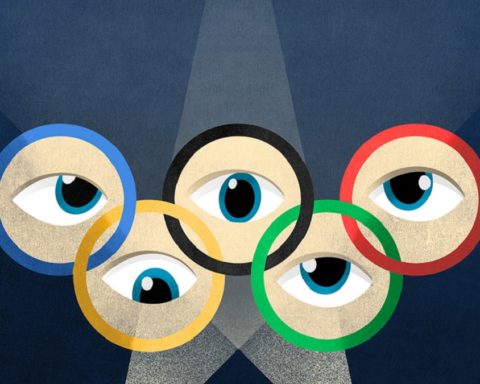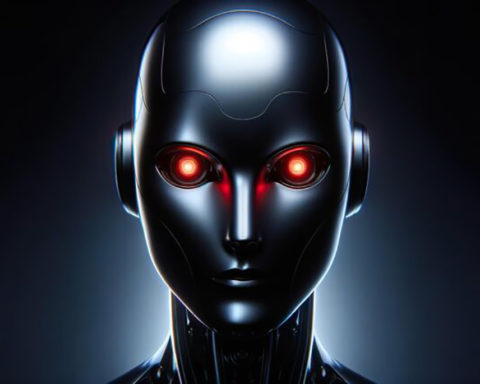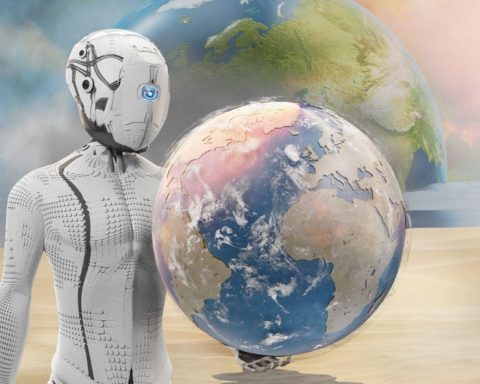La question de l’efficacité et des limitations d’une IA diagnostique se pose, d’un point de vue technique, mais également éthique et juridique. Le 27 février, l’association Aristote organise un séminaire sur les rapports entre IA et santé. En quoi ce secteur est-il bouleversé en profondeur par l’arrivée de ces nouvelles technologies ? Et pourquoi des Gafam aux PME, cette nouvelle approche de la santé attire-t-elle tant d’acteurs ? Quelles en sont les conséquences tant économiques que civilisationnelles ? Un entretien réalisé par l’association Aristote en amont de cette conférence, avec les deux organisateurs du séminaire Judith Nicogossian, Anthropologue, et Christophe Denis, chercheur au Lip6 de la Sorbonne, démontre les enjeux et défis de l’IA dans l’univers de la santé.
En avril 2018, la FDA (Food and Drug Administration) donne le coup d’envoi de la compétitivité internationale de l’usage de l’IA diagnostique en santé en autorisant une IA à poser un diagnostic dans le domaine de la rétinopathie diabétique, en l’absence de la présence d’un expert humain. Cette décision soulève beaucoup de questions sur les potentialités de l’outil, et notamment, la perspective de devoir repenser la formation en santé en intégrant le tiers technologique autonome dans la relation médecin-malade, et à la lumière des connaissances sur le facteur humain.
De même, la question de l’efficacité et des limitations d’une IA diagnostique se pose, d’un point de vue technique, mais également éthique et juridique, notamment, celle stratégique de la question de la souveraineté des données de santé.
Enfin, la question se pose d’une IA diagnostique en santé à portée civilisationnelle. S’agit-il d’une innovation disruptive ou d’une (simple) perspective incrémentale ? Quelle est la posture à adopter, entre fantasme et intérêt ? Car finalement, cet IA diagnostique, au mieux, ne devrait-elle pas intégrer à la programmation les valeurs et les besoins réels des patients en respect d’une alliance thérapeutique nécessaire à la relation de soin ?
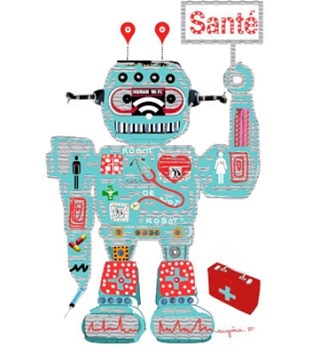
Ce n’est pas la première fois qu’Aristote s’intéresse à l’intelligence artificielle ?
Christophe Denis : Oui, c’est un sujet de séminaire que l’on a régulièrement depuis deux ans. Le premier séminaire consistait surtout en un tour d’horizon global. Nous avions choisi d’avoir un point de vue général sur les applications autour de l’IA. Est-ce un buzzwords ou non ? Puis nous nous sommes concentrés dans un deuxième séminaire sur les défis actuels : comment donner du sens aux résultats produits par l’intelligence artificielle. Nous avions alors abordé en détail la notion d’explicabilité. Le but était de jeter un œil dans les boîtes noires que ce soit via la recherche académique ou avec des startups comme Craft IA. Après ces deux séminaires, et suite à de nombreux échanges, nous avons décidé de faire un point plus particulier sur l’approche de l’IA en santé.
Le numérique change beaucoup de choses dans le domaine de la santé ?
Judith Nicogossian : Oui, et nous avons abordé ce thème lors de précédents séminaires. Par exemple, nous avons parlé de l’apport du numérique à la santé dans le cadre du changement de paradigme en cours dans ce domaine, d’une médecine 4P (prédictive, préventive, personnalisée et participative).
En ce moment, notre rapport au numérique redéfinit les contours de la santé, de la maladie, le parcours de soin devient 2.0, le rapport médecin-patient change.
On note également l’apparition d’une médecine exponentielle, interprétée comme l’application des théories transhumanistes à la santé. Il fallait défricher tout cela. Nous avons notamment réalisé un focus sur l’apport des techniques de systèmes intelligentes (IA), les questions autour de leur programmation, de leurs impacts éthiques ou juridiques.
Quelles questions cela pose sur la qualité de soin, la responsabilité du diagnostic, du traitement, la confiance, par exemple. Il a fallu questionner l’explicabilité des algorithmes. En santé plus qu’ailleurs, il faut savoir ce que l’on fait des boîtes noires. Jusqu’à quel point peut-on les accepter ?
Et dans ce séminaire, sur quoi allez-vous vous concentrer ?
JN : Nous allons travailler autour de la question de l’expertise diagnostique et de la confiance, et donc celle de la formation médicale et du « facteur humain », la partie infrangible du comportement humain dans l’interaction homme-machine.
Depuis avril 2018, la FDA (Food and Drug Administration) a autorisé une IA à poser un diagnostic dans le domaine de la rétinopathie diabétique, en l’absence de la présence d’un expert humain. Alors nous interrogerons ce que l’on peut réaliser aujourd’hui en termes techniques et technologiques grâce à ces diagnostics.
Car la médecine est désormais répartie dans des champs très différents. Et l’apport de ces outils n’est pas le même entre ces champs médicaux. Par exemple, l’IA a davantage d’apport en radiologie qu’en médecine généraliste. La chirurgie est aussi un cas à part. Donc il faut réfléchir à toutes ces potentialités technologiques par champ d’expertise à la fois médicale et transversale aux autres disciplines.
A ce sujet nous avons invités des orateurs comme Guy Vallancien (urologue) Arthur André (neuro-chirurgien), Antoine Tesnières (I-Lumens et vice-président des universités de Paris)
Pierre-Antoine Gourraud (praticien hospitalier), Nicolas Pivert (Medtronic), Bénédicte Poumarède (Doseo), Nicolas Pons (INRA), Bruno Patin (Dassault) ou encore Denis Caromel (ActiveEon) qui se posent cette question du point de vue de leurs spécialités réciproques.
CD : Dans un deuxième temps, nous allons aborder les limitations de ces outils intelligents. Si le discours juridique, éthique ou encore philosophique a déjà été traité, il y aura ici des apports différents comme la souveraineté des données couverts par les juristes Bénédicte Bévière-Boyer ou Alain Legendre.
JN : On a encore du mal à se marginaliser du monopole des Gafam sur les données, qui sont récupérées aujourd’hui de façon globale. Nous avons lancé le Health Data Hub, une plateforme d’exploitation des données de santé, gérée par le Ministère des Solidarités et de la Santé mais qui n’est finalement qu’une pâle copie des préoccupations de Google à l’heure actuelle. Nous attacherons donc à questionner davantage la souveraineté des données grâce aux éclairages spécialistes d’Alexandre Templier (QUINTEN).
Enfin, sur le plan civilisationnel, nous allons entrer plus concrètement sur les positions à avoir vis-à-vis de l’IA avec des témoignages expérientiels, comme celui de Loïc Etienne médecin urgentiste (Medvir), qui parlera pratiquement de son vécu.
Le but est de sortir de la logique floue pour coller au mieux sur les besoins du réel et pouvoir travailler la programmation linguistique, le traitement naturel des langues (nous aurons le témoignage de l’expert Frédéric Landragin à ce sujet). Sans pour autant s’interdire de se projeter et d’aller au-devant de la prospective.
Nous aurons la chance d’avoir la contribution de la maison d’édition La Volte, avec un directeur éditorial Stuart Pluen Calvo et un auteur de science-fiction, Raphaël Granier de Cassagnac, qui possède la double compétence d’être également un physicien.
Une vision très interdisciplinaire donc…
JN : Oui. Le champ de la santé est une transformation concrète avec un impact sur le corps humain, en société, il s’agit que ces technologies numériques appliquées au médical fassent sens. C’est un créneau pour les industriels qui cherchent à développer de nouveaux outils et deviennent de fait eux-mêmes le relais de ce domaine de connaissance neuf, l’impact des systèmes automatisés sur l’humain, notre espèce.
Face à ces évolutions tant technologiques qu’économiques, nous sommes déterminés à changer notre approche, et créer des rencontres interdisciplinaires.
Quelles sont les bases du nouveau paradigme médical ?
JN : Le premier moteur de ces évolutions est un impératif : la réduction des coûts de santé.
Face à l’explosion démographique, il faut réduire les coûts afférents à la santé. Donc s’appuyer sur l’économie de ces nouvelles technologies pour continuer à améliorer et garantir la santé des humains tout en minimisant l’argent dépensé.
En parallèle, nous sortons de la vision mécaniste, fonctionnaliste du corps humain, finalement très cartésienne. La médecine occidentale porte un nouveau regard sur le corps, avec une approche désormais plus holistique, et en laissant davantage plus de place aux médecines traditionnelles.
Les technologies seront-elles capables d’être à la hauteur de cet espoir ? Quelles sont les limites de l’humain en santé ?
Le domaine de la santé est donc très particulier ?
CD : La santé est un secteur caractéristique car on assiste à un positionnement d’acteurs différents autour des Gafam qui investissent massivement. Cela pose la question de la cybersécurité, mais aussi de la sécurité de manière générale. L’automatisation des processus rétroagit sur les personnes, il faut questionner ces effets : les pertes de vigilance, l’enfermement. Et les questions que l’on se pose autour de la santé sont applicables dans d’autres domaines.
JN : A l’inverse, l’arrivée de l’IA requestionne aussi la pratique médicale. Car cette automatisation technique n’a pas attendu l’IA actuelle pour se mettre en marche. Nous ne nous dirigeons pas vers du disruptif, mais plutôt vers de l’incrémental. En revanche, cette transformation nous pousse à réfléchir sur les besoins réels de l’humain. Sur la validation du médicament par exemple, avec des méthodes plus rigoureuses pour mesurer les effets cliniques.
L’outil peut devenir alors très convaincant. Que ce soit dans le domaine de la santé ou ailleurs, l’IA nous encline à modifier nos comportements, jouer avec nos émotions. Nos réactions humaines évoluent et surtout co-évoluent avec celles des machines. On ne parle pas de remplacement mais de complémentarité.
(Source : Aristote, Février 2020)
Séminaire « Un check-up de l’IA pour la santé numérique, c’est grave docteur(s) ? par l’Association ARISTOTE le 27 Février, de 8h30 à 18h – Ecole Polytechnique, Route de Saclay – 91128 Palaiseau

